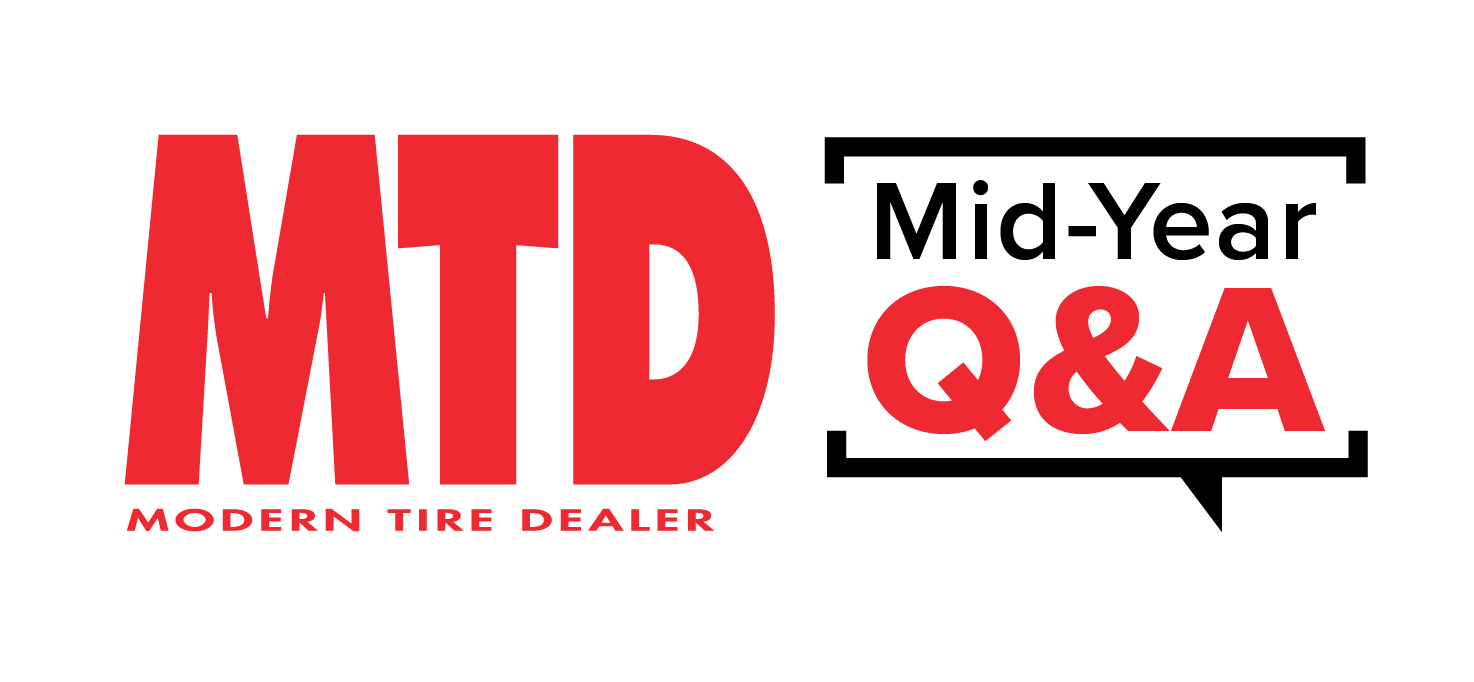Yokohama TWS is focused on refining its brand positioning, expanding its distribution network and more, says Elio Bartoli, the company’s CEO.
MTD: Can you bring us up to speed on Yokohama TWS' business in the U.S. so far this year? What have some of the company's highlights and challenges been?
Bartoli: Yokohama TWS is a global leader in designing and producing advanced tire and wheel solutions for the agriculture, construction, material handling and two-wheeler markets. Our manufacturing footprint and multi-brand portfolio allow us to serve customers worldwide with increasingly sustainable and high-performing solutions. In the U.S., as in many commercial markets, we’ve faced a number of challenges this year. Many of our aftermarket dealers and OEM partners entered the year with high inventory levels, which naturally impacted order flow. At the same time, the market has been affected by broader economic dynamics, including fentanyl-related trade restrictions and reciprocal tariffs, followed by retaliatory measures from other countries. These factors have created added complexity, particularly on the OEM side.
That said, our aftermarket business delivered a very strong first half, outperforming the same period last year. We’ve focused on strengthening our sales organization, refining our brand positioning and expanding our distribution network to stay closer to our customers and support them more effectively across the country. Despite the challenges, we’re confident in the work we’ve done so far and focused on building momentum for the rest of the year - remaining committed to supporting our partners with high-performing, durable tire solutions tailored to their specific needs across our multi-brand portfolio.
MTD: What's your assessment of the material handling tire market in the U.S. at the moment?
Bartoli: Right now, demand in the U.S. material handling tire market is generally in line with the same period last year. The need is there and operations are moving, but there’s also a sense of caution. Given the broader economic context we mentioned earlier, we’re hearing from many dealers who are choosing to limit purchases and manage inventory more conservatively. In some cases, it’s as simple as if it's not already sold, they’re not stocking it. There’s a clear wait-and-see mindset across parts of the market.
At the same time, the underlying activity and operational demand remain healthy, which tells us this is more about short-term risk management than a sign of deeper weakness. As always, we’re staying close to our customers, helping them stay flexible while making sure we’re ready to respond when confidence and buying activity pick back up.
MTD: Where does Yokohama TWS fit within Yokohama Rubber Co. Ltd.'s overall off- highway tire structure?
Bartoli: The acquisition by Yokohama Rubber Co. Ltd., completed in 2023, marked the beginning of a new chapter for us - one filled with strategic opportunities. Being part of a global group with strong positions in both consumer and off-highway tires allows us to generate real synergies in key areas, such as raw material sourcing and supply chain optimization. These are critical levers and we now work closely with other companies within the group to create greater value. Another key strength is our industrial footprint. Yokohama TWS already operates 12 manufacturing sites across three continents, following a local-for-local approach. Now as part of Yokohama Rubber, we are connected to the largest off-highway production network worldwide. This means we can serve markets more quickly and efficiently, reinforcing our responsiveness and agility. At the same time, we remain fully in charge of managing our portfolio of brands: Trelleborg Tires, Mitas, Maximo, Cultor and Interfit. Each company within the Yokohama group operates independently and in some cases, we even compete in the same markets. It might sound unusual, but it’s a very smart strategy. Every brand has its own positioning and business model. This clear separation helps us avoid overlap and confusion in the market, while maximizing growth potential.
Yokohama is a group focused on growth, as also shown by its recent acquisition of Goodyear’s OTR business. But to grow effectively, you need to respect and preserve what already works. What may look like internal competition is actually a well-balanced coexistence of complementary strategies.
MTD: Yokohama TWS continues to develop new products for a wide range of industrial applications, maintaining a steady cadence of new tire introductions. Why is this important for both the company and its distributors and dealers?
Bartoli: The tire world is evolving rapidly, with significant advancements in technology, sustainability and digitalization. We aim to stay at the forefront by focusing on sustainable production, increasing the performance and longevity of our multi-brand tires and embracing innovations that support both our customers and the environment.
In the industrial segment, particularly in material handling, demand continues to grow as companies redesign their logistics networks and push for greater efficiency. The post-pandemic shift toward nearshoring and the rise of e-commerce have led to a boom in warehouses and automated facilities, where uptime is critical, and tire performance makes a real difference. That’s why constant innovation matters. It allows us and our dealer network to meet new needs with solutions that are both practical and forward-looking.
Customers today are looking for durability, heat resistance, specialized compounds - basically tires tailored to specific working environments. One-size-fits-all is no longer enough. That’s exactly where the Trelleborg XP Tire range comes in, with its wide array of compound options allowing for customization to meet specific operational needs. Whether the challenge is working in clean indoor environments, handling high-intensity cycles, managing heat or preventing static build-up, there’s a tailored solution available. We’ve developed compounds that respond to these different realities - for example, non-marking solutions for sensitive warehouse floors, heat-resistant versions for high-temperature operations and conductive compounds to reduce electrostatic risk. It’s all about helping customers maintain efficiency, safety and uptime, no matter the environment they operate in. And with smart technologies like the Pit Stop Line, operators can also plan maintenance more accurately, minimizing unexpected downtime and maximizing productivity. This versatility gives our partners the ability to offer the right solution for every job, while supporting long-term performance and reliability.
Looking ahead, we see material handling becoming even more central to global supply chains. Our role is to help customers stay one step ahead, with tires that are ready for whatever comes next. At the same time, agriculture remains a key focus for us. As agricultural machinery becomes more powerful and operations more efficiency-focused, tires must evolve in parallel. That’s why we continue to invest in our agricultural portfolio as well, expanding high-performance ranges such as the Trelleborg TM800 ProgressiveTraction and TM900 ProgressiveTraction tires to maximize traction, minimize soil compaction and perform at a high level over time, under the rigorous conditions of today’s farms. Most recently, we introduced the Trelleborg TM800 PowerFlex tire range, a completely new tire concept for high-power tractors operating intensively both in the field and on the road - delivering top performance, stability and control in all working conditions. These developments and innovations reflect our strong commitment to supporting long-term productivity and sustainable farming practices across key global markets, including the U.S., where we see significant opportunity for growth.
MTD: What can we expect to see from Yokohama TWS during the rest of 2025 and into next year?
Bartoli: Innovation has always been at the core of our identity. It drives us to develop solutions that anticipate the needs of operators, tackle global market challenges and strengthen our long-term competitiveness. Across our key segments - agriculture, material handling, construction, and motorcycle tires - we will continue to evolve tread designs to ensure maximum performance in the field and on the road. At the same time, we’re optimizing tire structures and compounds to improve durability and reliability.
Sustainability remains a key priority for us. We're investing in alternative materials and advanced technologies that not only reduce the environmental impact of our tires but also enhance cost efficiency and overall value for our customers. By extending tire life and improving fuel efficiency, we help operators lower their total operating costs without compromising on performance. Looking ahead, you can expect Yokohama TWS to deliver cutting-edge, tailored solutions across all our brands - Trelleborg Tires, Mitas, Maximo, Cultor and the Interfit global service network - that meet the diverse demands of these sectors while supporting a more sustainable future.
About the Author
Mike Manges
Editor
Mike Manges is Modern Tire Dealer’s editor. A 28-year tire industry veteran, he is a three-time International Automotive Media Association Award winner, holds a Gold Award from the Association of Automotive Publication Editors and was named a finalist for the prestigious Jesse H. Neal Award, the Pulitzer Prize of business-to-business media, in 2024. He also was named Endeavor Business Media's Editor of the Year in 2024. Mike has traveled the world in pursuit of stories that will help independent tire dealers move their businesses forward. Before rejoining MTD in 2019, he held corporate communications positions at two Fortune 500 companies and served as MTD’s senior editor from 2000 to 2010.


